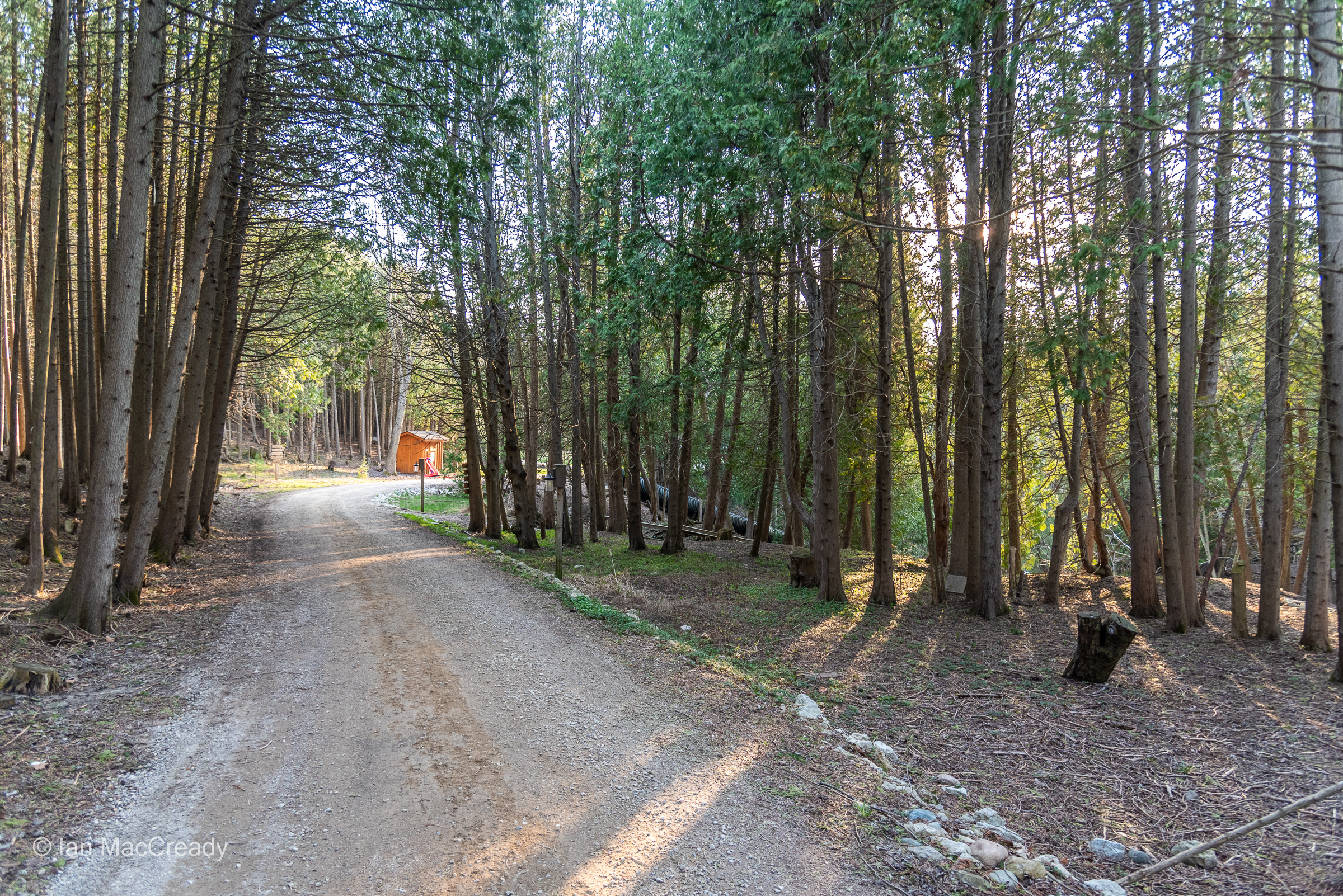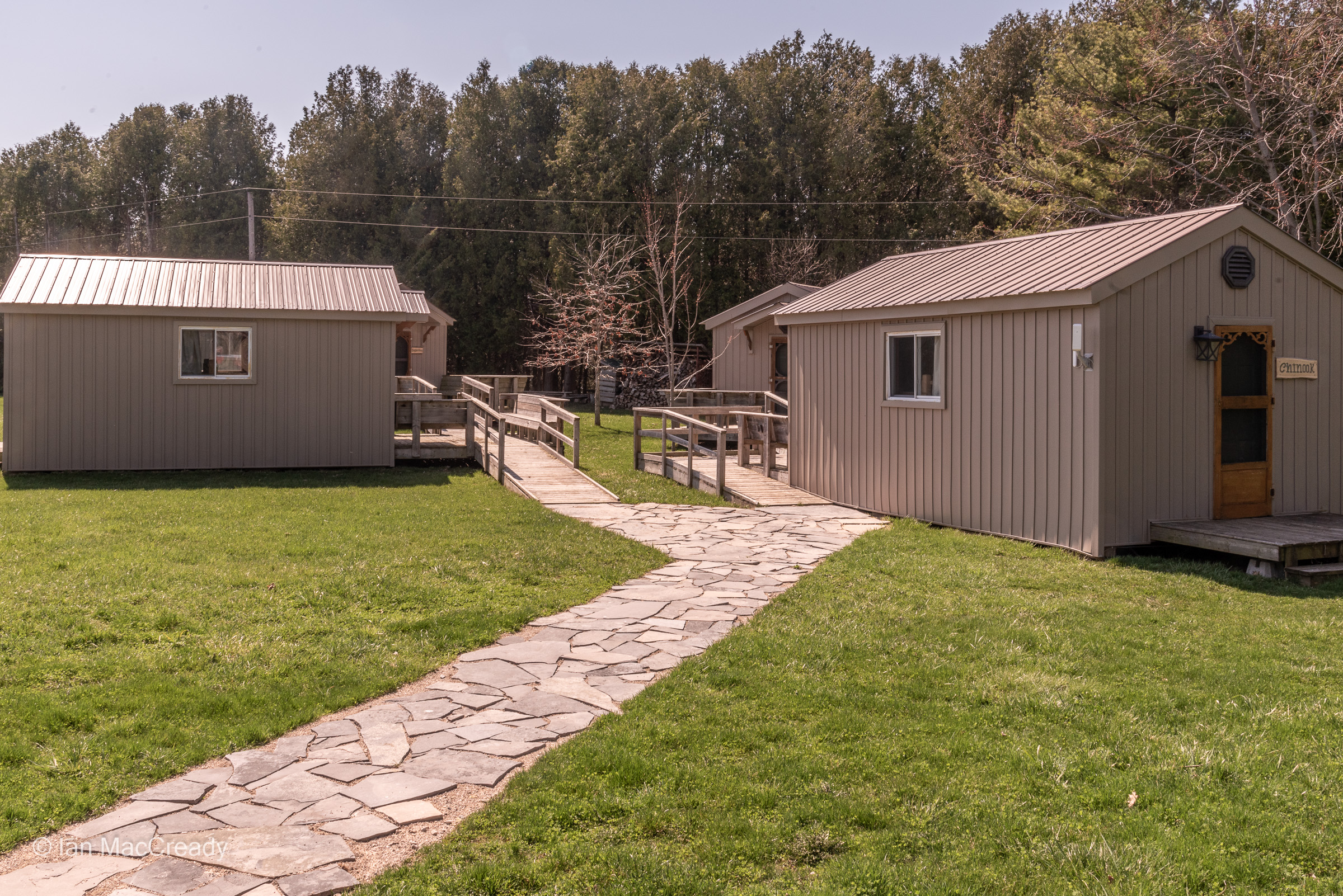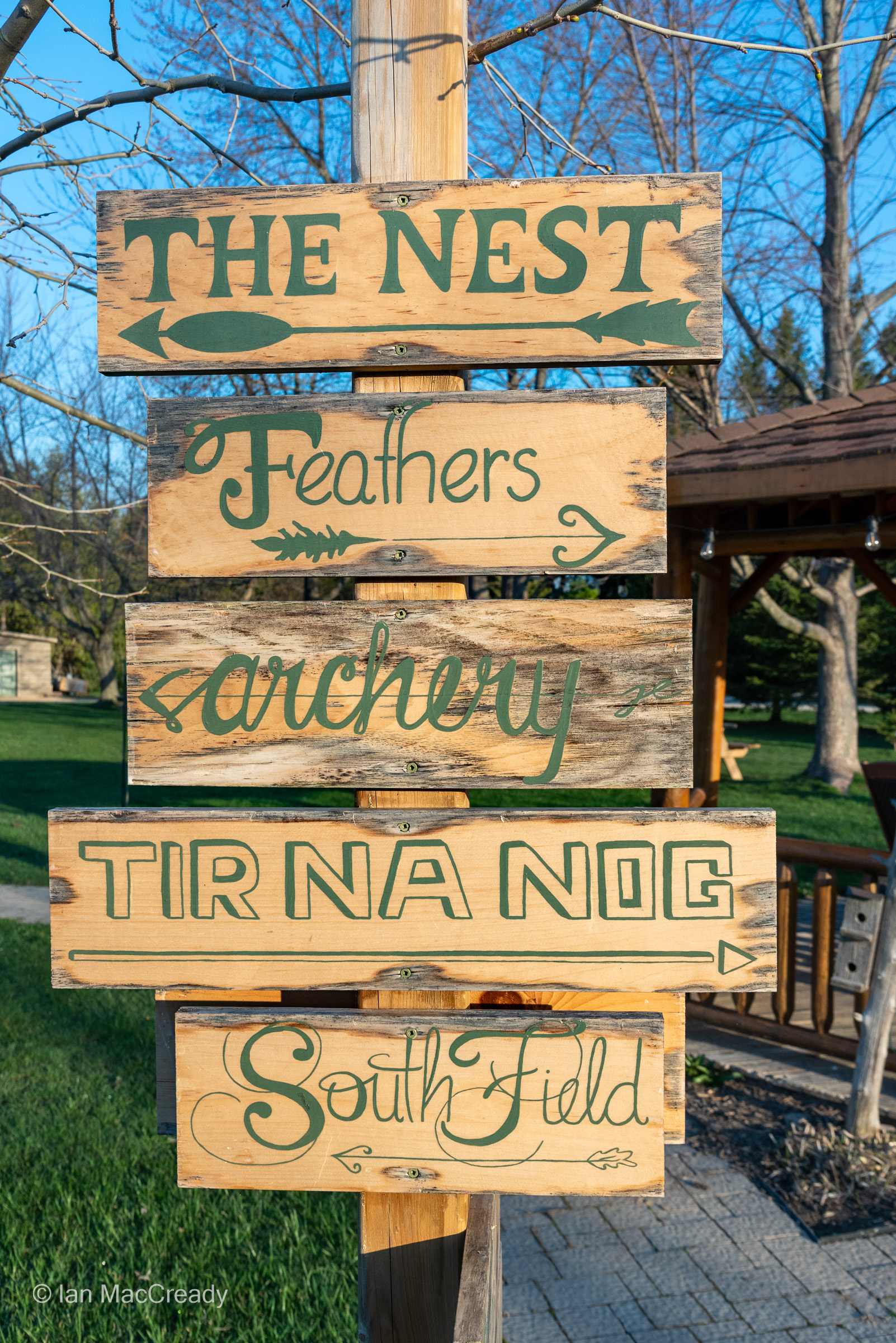

PMC is organised around a different meaningful theme each year. The week begins with old friends and new greeting one another. "Getting to know you" activities are followed by a meditative opening ceremony that introduces the camp’s theme. The theme is explored through brief daily worship services (morning and evening devotions) and through workshop activities that include vocal and instrumental music as well as crafts, drama, and physical activity. There are five daily workshop periods offering a broad variety of learning opportunities, and the workshop leaders are all fellow campers! The daily schedule also includes breakfast, lunch, dinner, snacks and an afternoon "Tuck Shop". After dinner each day a unique evening program is held to build community and to just have fun together! Campers can choose to be as busy as they want or as relaxed as they need in a beautiful, natural setting.
Workshops, meal-time music, variety night, camp concert, and impromptu gatherings provide many supportive performance opportunities for all musical levels. The only prerequisite is a love of music; no experience necessary.

PMC is completely volunteer run and is a registered charity.
The organising Board of Directors is made up of campers who meet throughout the year to plan the next year’s camp. It handles contracts, finances, registration, advertising, dean selection, programming and staffing.
Attend all/most PMC Board meetings
Meetings are usually on Saturdays, starting at 10:00 in the morning and ending around 2:30 or 3:00 in the afternoon. There is a break for lunch.
Meetings are scheduled:
Late September/early October to wrap up the camp we just had and confirm Board membership for the coming year.
November for pre-planning for the following year.
Regularly from January to June to plan the upcoming camp. We try to have everything that needs a meeting done by the end of June.
That means a total of 6-8 meetings from September to June.
Most meetings are on Zoom. We try to have at least one in-person meeting each year, at a central location.
It helps to attend as many meetings as possible as you learn the behind-the-scenes aspects of how camp works.
Some time between meetings is useful. You might need 1-2 hours to:
Complete items on the Action Items list
Prepare for meetings
review the agenda and alert the Chair of additions
read minutes and note any changes
read other documents and consider your response to issues
Input into discussion between meetings (e.g., review and comment on a document so the next draft can be prepared before a meeting).
Board members generally start off as a “Member at Large”. In this role, you contribute to all discussions and vote on motions (e.g., registration fees, budget, spending from special funds, policies), but don’t have a specific job to do.
You can volunteer for special projects, sub-committees, or assist with regular activities as you feel inspired. Extra commitments vary depending on what’s needed and your availability.
That probably means that the minimum commitment is about 7 hours per meeting, plus travel time.
If you want to make a more substantial contribution, you can take on a specific role on the Board. Some examples are: Staffing, Secretary, Treasurer, Registrar, Presbyterian Church in Canada Liaison, Administration & Policy, Social Media & Advertising, Website, Merchandise. Some people on the Board have been in these positions for a while, and may be happy to have an understudy for their role, or be available as a resource if needed.
The leaders for the camp week (the Deans) are experienced PMC campers chosen by the Board. The Deans (with Board support) choose and develop the year’s theme and plan devotions.
Workshop leaders select music pieces and activities for teaching and performance.
A workshop leader’s commitment is to lead a workshop during PMC. Workshops are usually 1 hour, but occasionally are longer or shorter – please check with your PMC contact to confirm the length of the workshop.
In addition to the commitment at camp, there are some pre- and post- activities.
Pre-camp
Plan what will happen each day; make notes if you need them
Think about space set up
Gather resources: music, photocopies, pencils, etc. (You can make limited photocopies at camp - come as prepared as you can be!)
If there are things that you might need to spend money on, check with your PMC contact first to make sure these are budgeted
If approved, label your receipts with your name, the workshop, and the amount
Give receipts to the Treasurer at camp
If people will need to bring supplies, list those and get information to your PMC contact by the specified date so the right information can be in the Deans’ letter to campers.
At camp
Attend the staff meeting before dinner on the first day – the time and location will be communicated to you. Ask your PMC contact if you aren’t sure.
Ensure you are on time and ready for each workshop.
Plan to be available for a few minutes after each workshop, for follow up.
Talk to your PMC contact or the Deans during PMC, especially if you need help with problem-solving (e.g., extra hands for crowd control, space or furniture problems)
Provide your receipts to the Treasurer (if you haven’t done that already).
Post-camp
Give feedback at the end of camp on what went well, what could be done differently, ideas for next year, and if you would be willing to lead again (either the same workshop or something different).
Many other volunteers are asked to help with worship, tuck shop, teen mentorship, sound and lighting, etc. There is a camp first-aider who is present to assist as needed for scrapes, bruises, and other minor medical concerns. Every camper has a role in the camp experience; campers sign up for leading grace at meal times, and everyone helps to keep the site litter-free.
Some specific commitments are:
A worship leader might be a family or some friends, or even an individual, who takes responsibility for one worship service at camp.
Pre-camp
Get scripture from the Deans
Select a way to present the theme and scripture to the camp community through story, song, skits, art, etc.
Gather or create any resources you may need (e.g., props, powerpoint)
At camp
Lead the designated worship service (usually about 15 minutes)
You can ask for help if you need it (e.g., accompanists, extras for skits)
In 1972 a small group of Presbyterian ministers, church musicians and their families got together for a week in the summer to become familiar with the newly revised Presbyterian hymn book, The Book of Praise. That was the first Presbyterian Music Camp, and it was held at a United Church camp on Golden Lake in the Ottawa Valley. It was so popular that it was held again the following year – and every year since. By 1996, the camp had outgrown the Golden Lake site and moved to Camp Tamarack near Bracebridge. After two years of running camp on-line due to Covid, PMC celebrated its 50th anniversary at Camp Tamarack in 2022. In 2023, PMC moved to its first Presbyterian home at Camp Kintail, on the shores of Lake Huron.

Camp Kintail has its own professional kitchen staff that provides all meals and snacks, including accommodations for particular dietary needs and allergies. Other refrigeration and food storage spaces are also available if needed. Camp Kintail also provides cleaning staff for the bathrooms and showers, and lifeguards to keep waterfront activities supervised and safe.
There is a hospital with 24/7 emergency services located in Goderich, 19 minutes away.
You can learn more about Camp Kintail on their website.
Here are a few foundational documents that help convey what kind of community PMC is.
Certain aspects of camp, especially the selection of workshops and evening programs, are planned throughout the year. To help flesh out the picture of what PMC is, you can find information on previous PMC years here.